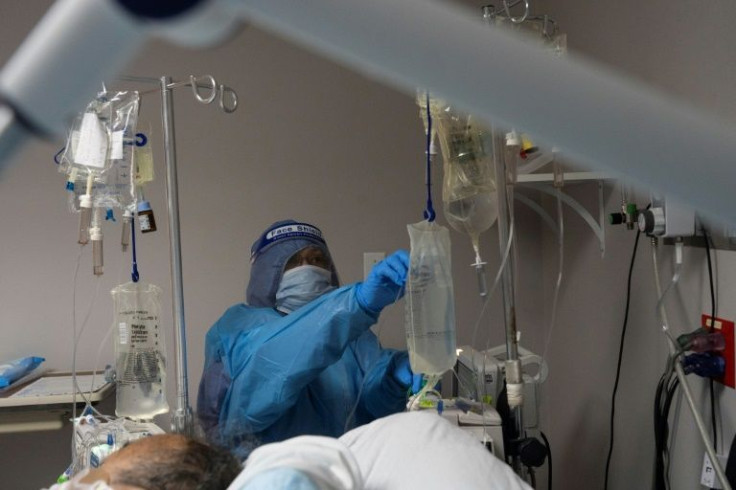Lab Worker Bitten By Mouse With COVID-19 Tests Positive, Sparks Fear Of New Outbreak
KEY POINTS
- The unidentified woman in her 20s had received two doses of Moderna vaccine
- She came in contact with 94 people after being bitten, 80 of whom tested negative
- Taiwanese authorities believe she is likely infected with the Delta variant
A lab worker in Taiwan tested positive for COVID-19 after being bitten by an infected mouse, sparking concerns of a new coronavirus outbreak on the island-nation that had gone without a single local case for more than a month.
The lab worker, who remains unidentified, came into contact with the virus during her work at Academia Sinica, Taiwan's top research institute, in mid-November, Health Minister Chen Shih-chung said at a quickly organised briefing Thursday, the Straits Times reported.
The woman, in her 20s, had received two shots of Moderna vaccine and had no recent travel history.
At another briefing Friday, a senior official confirmed to local media that the woman had been bitten by the laboratory mouse infected with COVID-19 on two separate occasions. However, authorities are investigating the case to determine if the bite was the source of transmission for the virus.
Taiwanese authorities also said they believe the woman is likely infected with the Delta variant.
Authorities in the health department identified 94 people who came in contact with the worker after she was infected, and placed them in quarantine, WION News reported. Eighty of them have since tested negative.
Before Thursday's infection, Taiwan's last confirmed local case was on Nov. 5. The country has been maintaining tough rules and following quarantine measures at the border to restrict the number of cases.
Taiwan has reported just over 14,500 domestic cases of COVID-19 and 848 deaths since the beginning of the pandemic.
According to the United States Centres for Disease Control and Prevention (CDC), the risk of animals spreading COVID-19 to people is considered low based on available information. The CDC said that further studies are needed to understand if and how the virus could impact different animals.
Though rare, some strains of the virus that infect animals can spread to people before transmitting via human-to-human contact, the CDC said - like what happened with Sars-CoV-2, it added, which likely originated in bats.
Since the pandemic started, there is no evidence that animals have played a significant role in spreading COVID-19, said the CDC.
However, some coronaviruses that infect animals can be spread to people and then spread between people, but the chances are rare, according to CDC.

© Copyright IBTimes 2024. All rights reserved.











